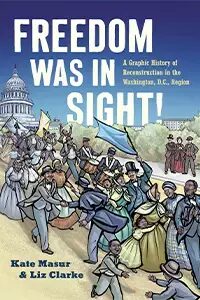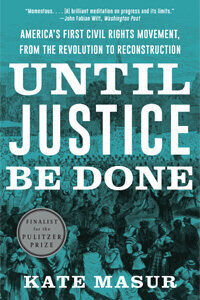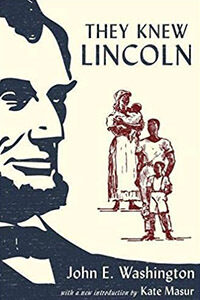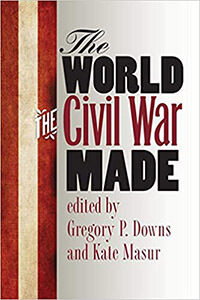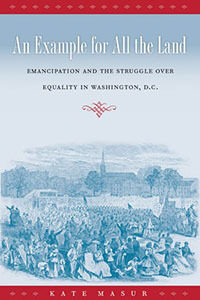James Forten, Letters from a Man of Colour, 1813
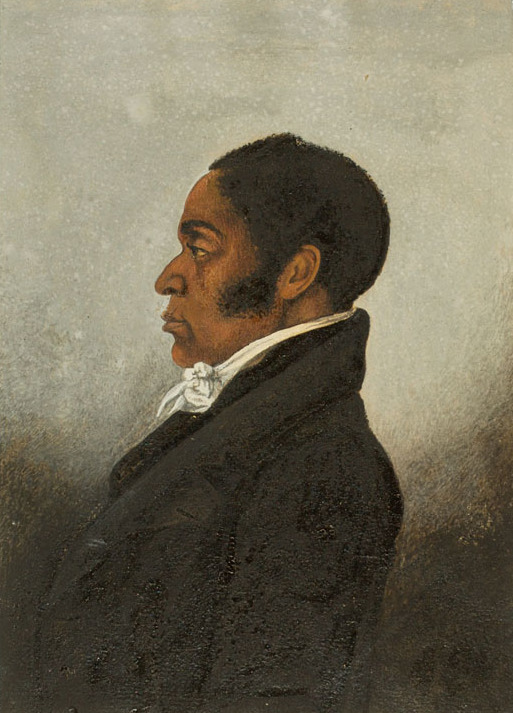
In this series of letters, James Forten, a prominent Black resident of Philadelphia, argued that the legislature of Pennsylvania must not pass a law requiring free African Americans to register with local officials. Such laws had already been adopted in the slave states as well as in Ohio and elsewhere in the Old Northwest. The text below is an excerpt. The entire pamphlet is transcribed here.
WE hold this truth to be self-evident, that GOD created all men equal and is one of the most prominent features in the Declaration of Independence, and in that glorious fabrick of collected wisdom, our noble Constitution. This idea embraces the Indian and the European, the Savage and the Saint, the Peruvian and the Laplander, the white Man and the African, and whatever measures are adopted subservice of this inestimable privileges, are in direct violation of the letter and spirit of our Constitution, and become subject to the animadversion of all, particularly those whoa re deeply interested in the measure. . . .
We will cheerfully submit to the laws, and aid in bringing offenders against them of every colour to justice; but do not let the laws operate so severely, so degradingly, so unjustly against us alone.
Let us put a case, in which the law in question operates particularly hard and unjust.—I have a brother, perhaps, who residents in a distant part of the Union, and after a separation of years, actuated by the same fraternal affection which beats in the bosom of a white man, he comes to visit me. Unless that brother be registered in twenty four hours after, and be able to produce a certificate to that effect, he is liable, according to the second and third sections of the bill, to a fine of twenty dollars, to arrest, imprisonment, and sale. Let the unprejudiced mind ponder upon this, and then pronounce it is the justifiable act of a free people, if he can. To this we trust our cause, without fear of the issue. The unprejudiced must pronounce any act tending to deprive a free man of his right, freedom and immunities, as not only cruel in the extreme, but decidedly unconstitutional both as regards the letter and spirit of that glorious instrument. The same power which protects the white man, should protect A MAN OF COLOUR . . . . .
[Under the proposed law] The man of colour receiving as a visiter [sic] any other person of colour, is bound to turn informer, and rudely report to the Register, that a friend and brother has come to visit him for a few days, whose name he must take within twenty four hours, or forfeit a sum which the iron hand of the law is authorized to rend from him, partly for the benefit of the REGISTER. Who is this Register? A man, and exercising an office, where ten dollars is the fee for each delinquent, will probably be a cruel man and find delinquents where they really do not exist. The poor black is left to the merciless gripe [sic] of an avaricious REIGSTER, without an appeal, in the event, form his tyranny or oppression! O miserable race, born to the same hopes, created with the same feeling, and destined for the same goal, you are reduced by your fellow creatures below the brute. . . . What have the people of colour been guilty of, that they more than others, should be compelled to register their houses, lands, servants and Children. Yes, ye rulers of the black man’s destiny, reflect upon this; our Children must be registered, and bear about them a certificate, or be subject to improvement and fine. You, who are perusing this effusion of feeling, are you a parent? Have you children around whom your affections are bound, by those delightful bonds which none but a parent can know? . . . .
By the third section of this bill, which is its peculiar hardship, the police officers are authorized to apprehend any black, whether a vagrant or a man of reputable character, who cannot produce a Certificate that he has been registered. He is to be arrayed before a justice, who is thereupon to commit him to prison!—The jailor is to advertise a Freeman, and at the expiration of six months, if no owner appear for this degraded black, he is to be exposed to sale, and if not sold to be confined at hard labour for seven years!!—Man of feeling, read this!—No matter who, no matter where. The Constable, whose antipathy generally against the black is very great, will take every opportunity of hurting his feelings!—Perhaps, he sees him at a distance, and having a mind to raise the boys in hue and cry against him, exclaims, “Halloa! Stop the Negro!” The boys, delighting in the sport, immediately begin to hunt him, and immediately from a hundred tongues, is heard the cry—“Hoa, Negro, where is your Certificate!”—Can any thing be conceived more degrading to humanity!—Can any thing be done more shocking to the principles of Civil Liberty! A person arriving from another state, ignorant of the existence of such a law, may fall a victim to its cruel oppression. But he is to be advertised, and if no owner appear—How can an owner appear for a man who is free and belongs to no one!—If no owner appear, he is exposed for sale!—Oh, inhuman spectacle: found in no unjust act, convicted of no crime, he is barbarously sold, like the produce of the soil, to the highest bidder, or what is still worse, for no crimes, without the inestimable privilege of a trial by his peers, doomed to the dreary walls of a prison for the term of seven tedious years!—My God, what a situation is his. . . . It has been left for Pennsylvania to raise her ponderous arm against the liberties of the black whose greatest boast has bene,t hat he resided in a State where Civil Liberty, and sacred Justice were administered alike to all.—What must be his reflections now, that the asylum he had left from mancipation [sic] has been destroyed, and that he is left to suffer, like Daniel of old, with no one but his God to help him! Where is the bosom that does not heave a sigh for his fall, unless it be callous to every sentiment of humanity and mercy?
Discussed in Until Justice Be Done, 21-23.
